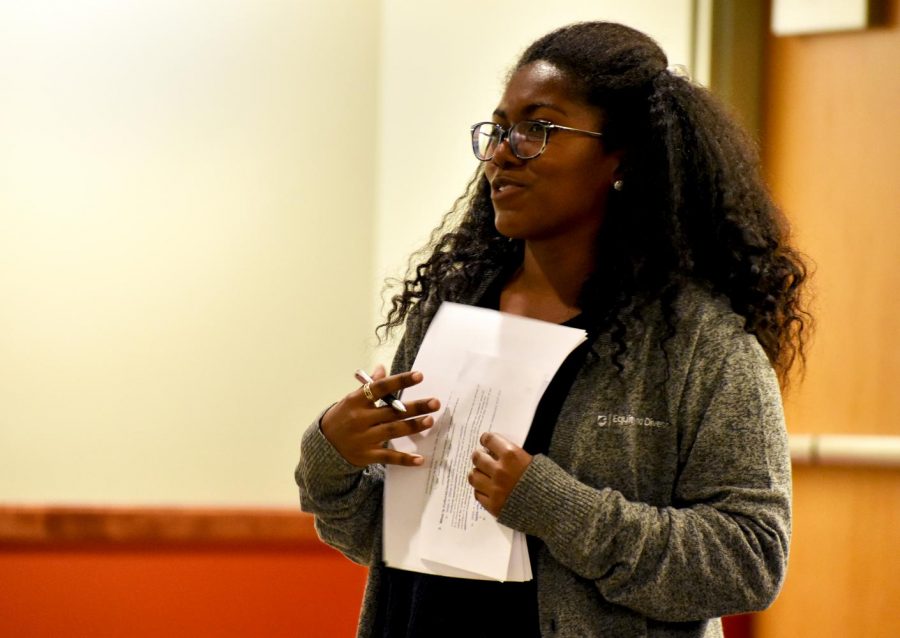Choose costumes carefully, student leaders say
Halloween attire should be respectful, considerate of others
KEISHA BROKAW | The Daily Evergreen
Jayda Moore, one of the Social Justice Peer Educators from Diversity Education, discusses how culturally appropriated costumes can be disrespectful and harmful to marginalized groups. The presentation and following forum was sponsored by ASWSU.
October 13, 2017
As Halloween comes closer, groups on campus reminded students of the harmful implications the costumes they wear can have on others during a presentation Thursday.
Jayda Moore, a social justice peer educator, defined cultural appropriation as taking a part of a person’s or group’s culture out of the original context and using it for your own purposes. Moore said it is usually done for fashion.
“These are usually done by the dominant members group,” she said, “and are taking elements from an oppressed or marginalized group.”
During the presentation, the leaders opened the floor for comments to hear what the audience had seen on campus. One audience member said he had seen cornrows, another said he had seen someone wearing a Fidel Castro costume.
The university has been accused of cultural appropriation in the past as well. In 2013, The Daily Evergreen reported that WSU athletics handed out Cougador masks in October of that year, despite the protests of many groups on campus, like M.E.Ch.A..
Throughout the presentation, the peer educators showed how many stereotyping costumes worn during Halloween can be harmful.
Moore said that blackface costumes are harmful because it reinforces old stereotypes of African-Americans and limits the seriousness of the Black experience in the country.
“Blackface has a … really long and very racist history,” she said.
In this part of the presentation, Moore taught the audience the history of blackface and why it was detrimental. She cited a Huffington Post article, saying that the history of blackface has roots of white men mocking African-American culture.
Moore then showed a picture of a white man in blackface, portraying Trayvon Martin, and said that these costume do not portray the actual experiences of people like Martin, and should not be taken lightly.
“We shouldn’t make fun of those people who had lost their lives,” she said.
Dahlia Farias, a social justice peer educator, said that the event was a safe space and that the presentation was meant to facilitate conversation.
Farias also said that there are other way to have a fun Halloween without mocking and taking away another’s culture.
Niklaus McHendry, another social justice peer educator, said not only should people educate themselves before confronting people who are wearing offensive costumes, but to educate others. They said that many people who wear costumes that are offensive do not realize the implications.
“Spread the word, help educate others.” Mchendry said.
ASWSU and the Social Justice Peer Educators, ran the event, which was titled, “We’re a Culture, not a Costume.”
Zana Crites, the deputy director of Communication for ASWSU, said the organization wants to make sure that everyone realizes the cultures behind offensive costumes.
“We want to make sure that school is inclusive and people can understand the importance of cultures,” she said.











